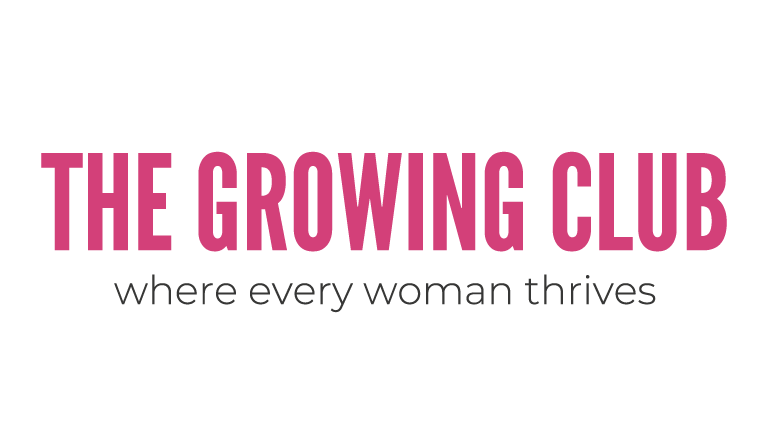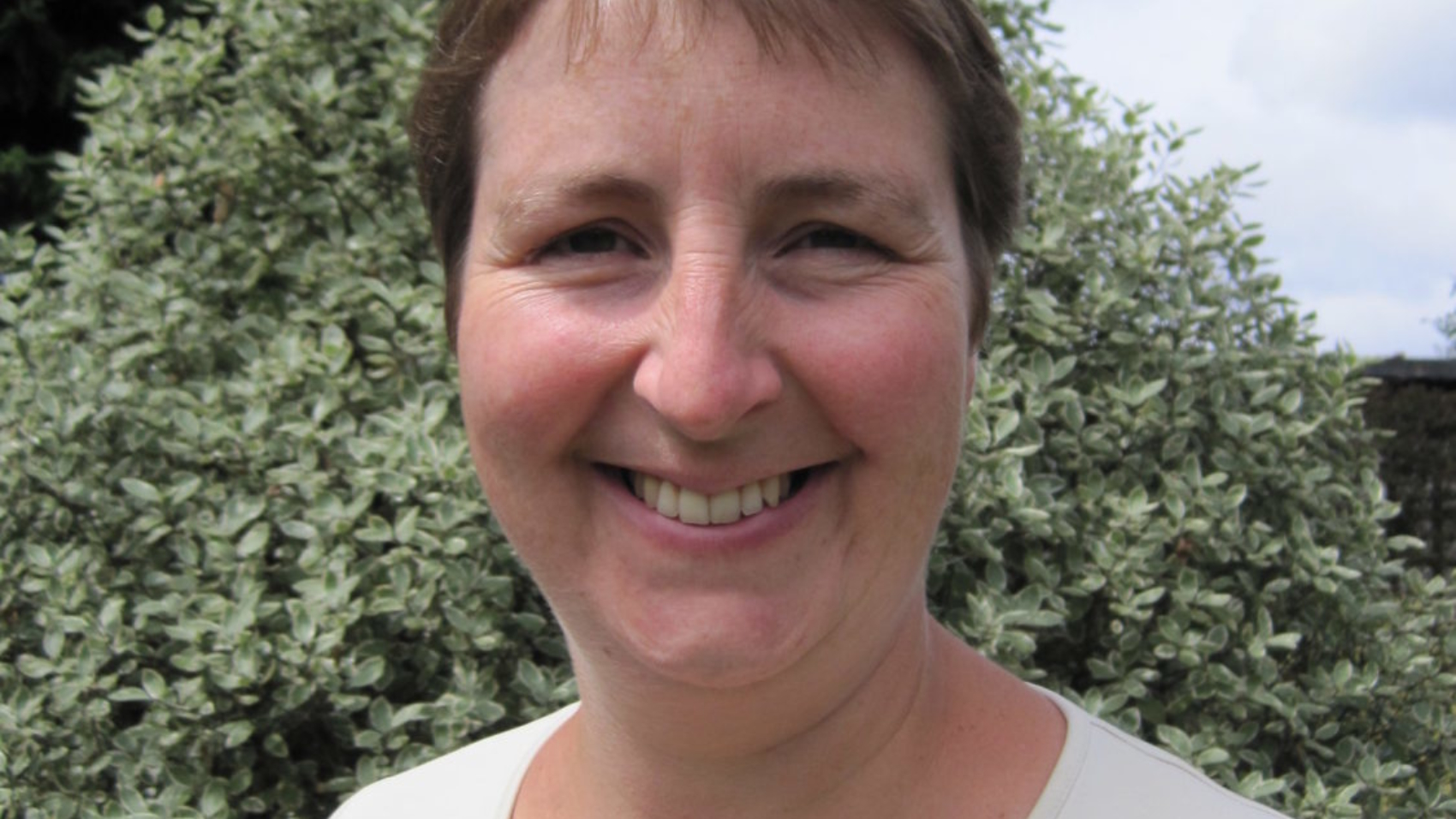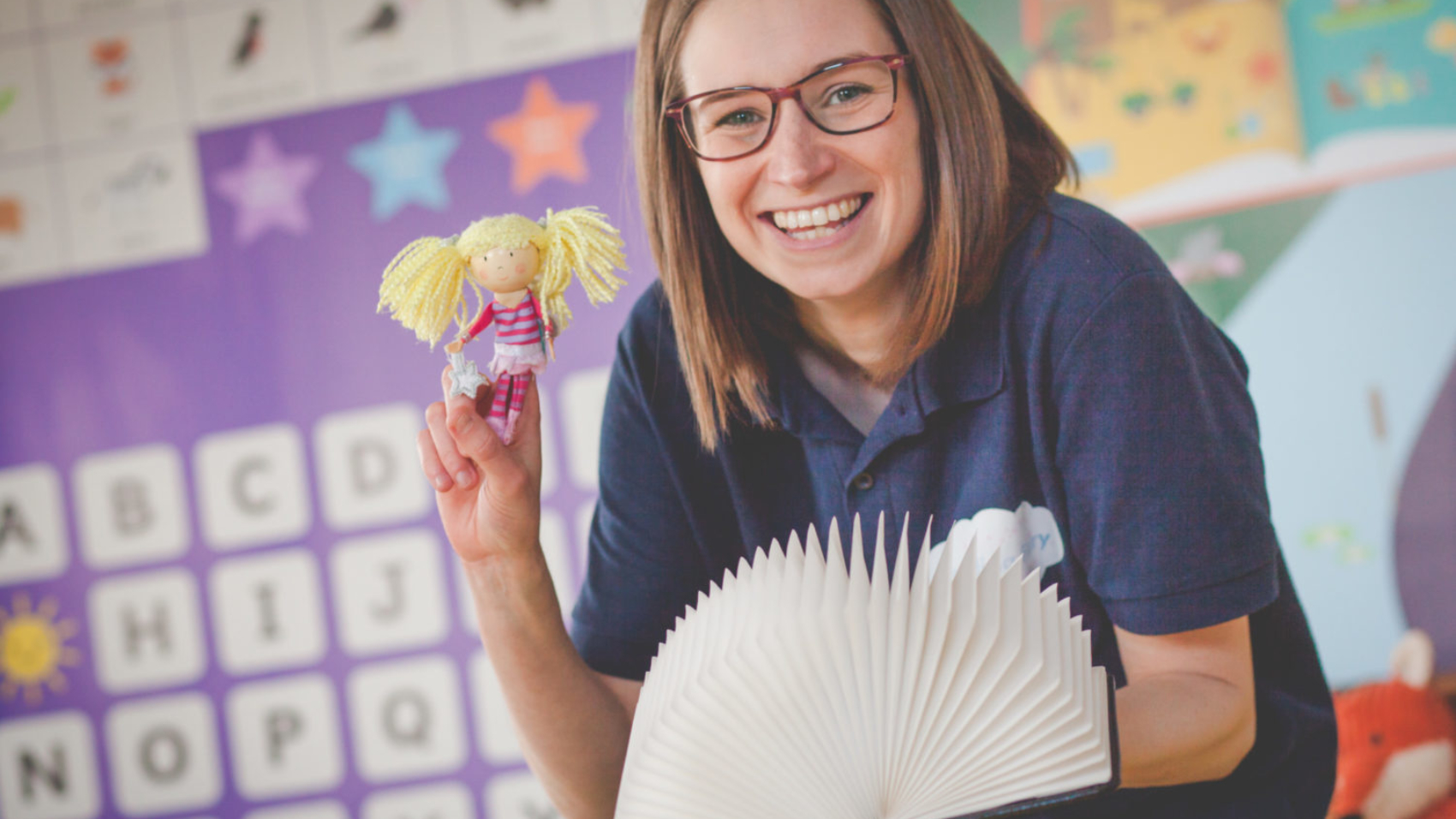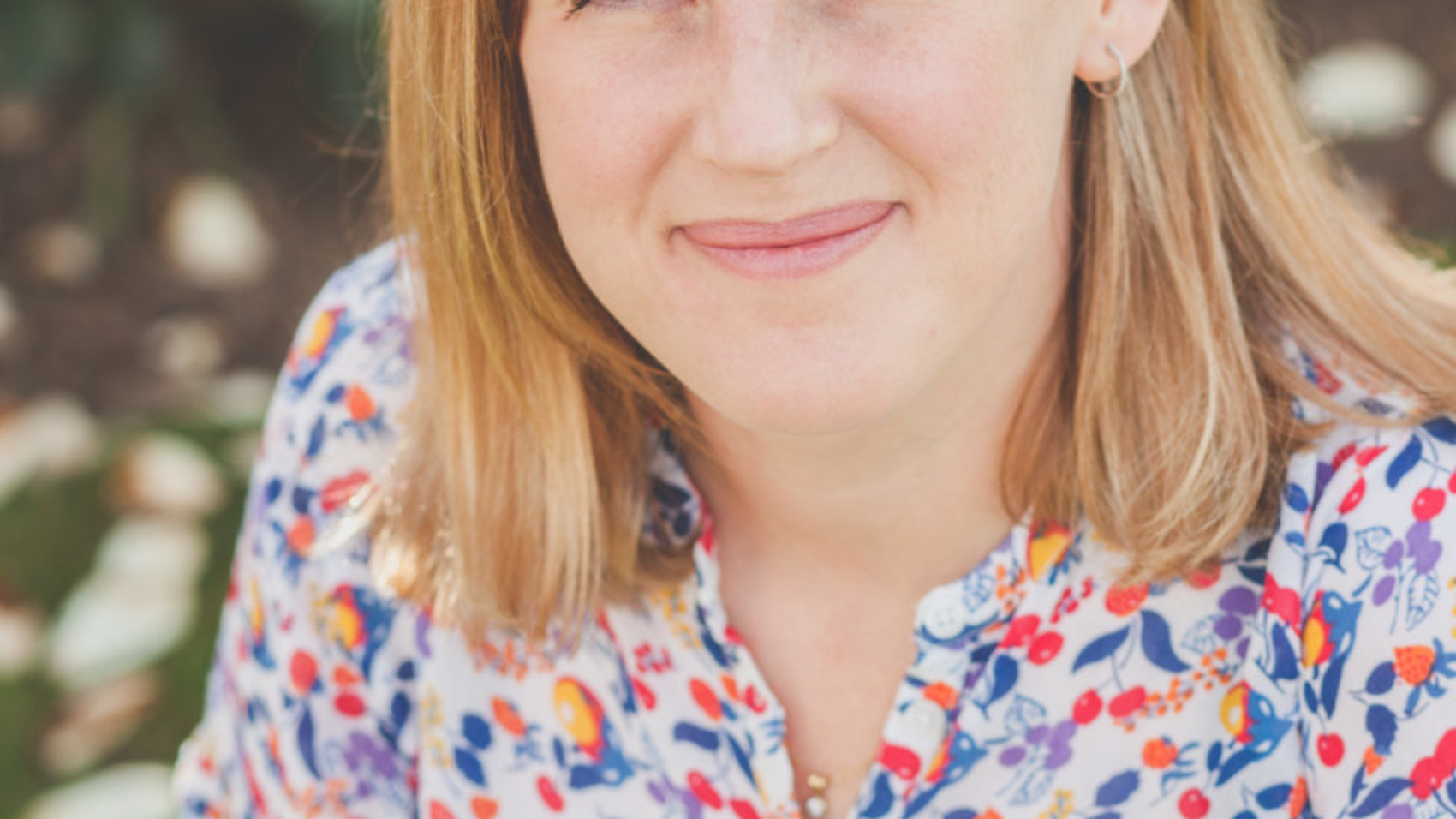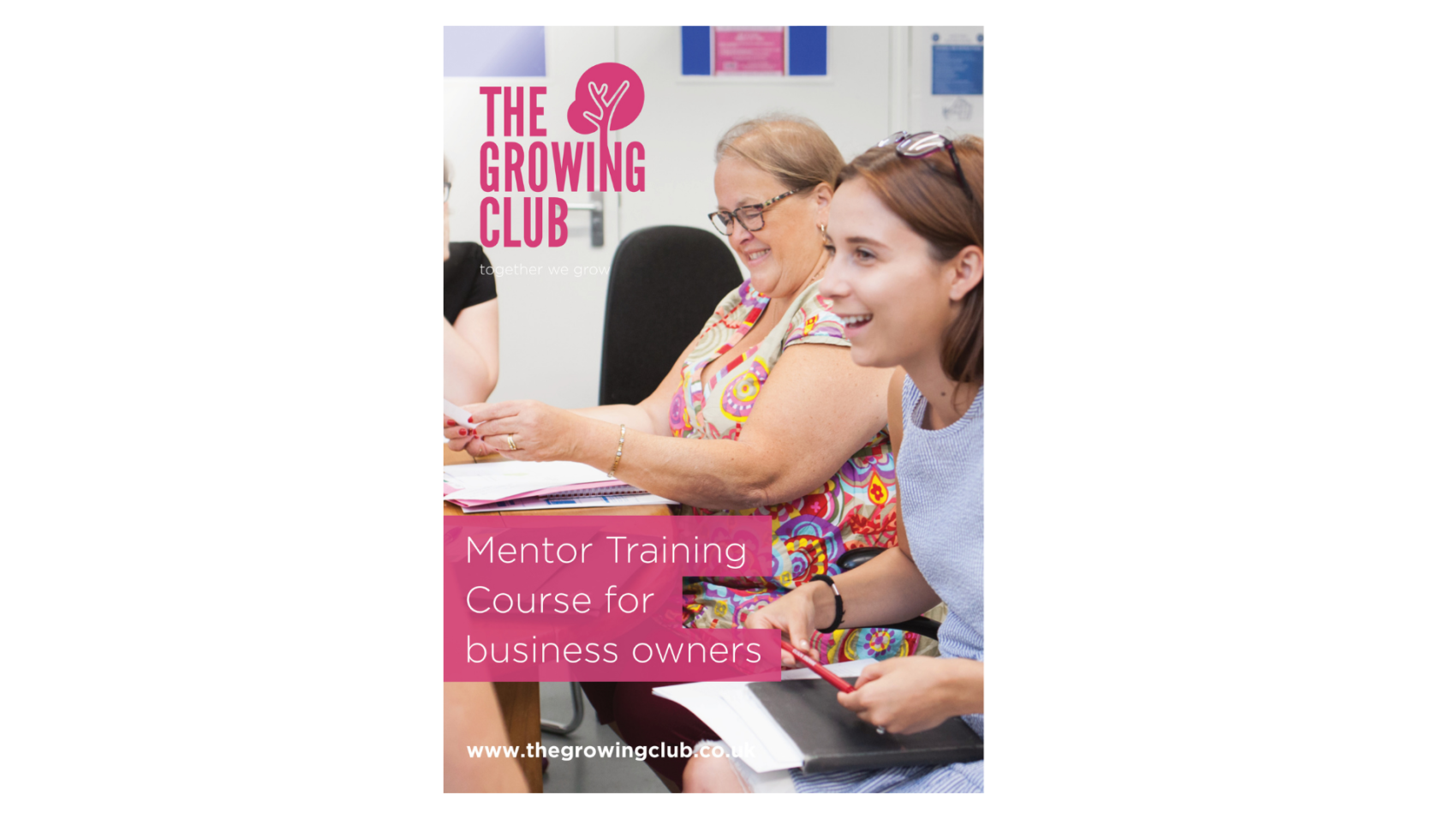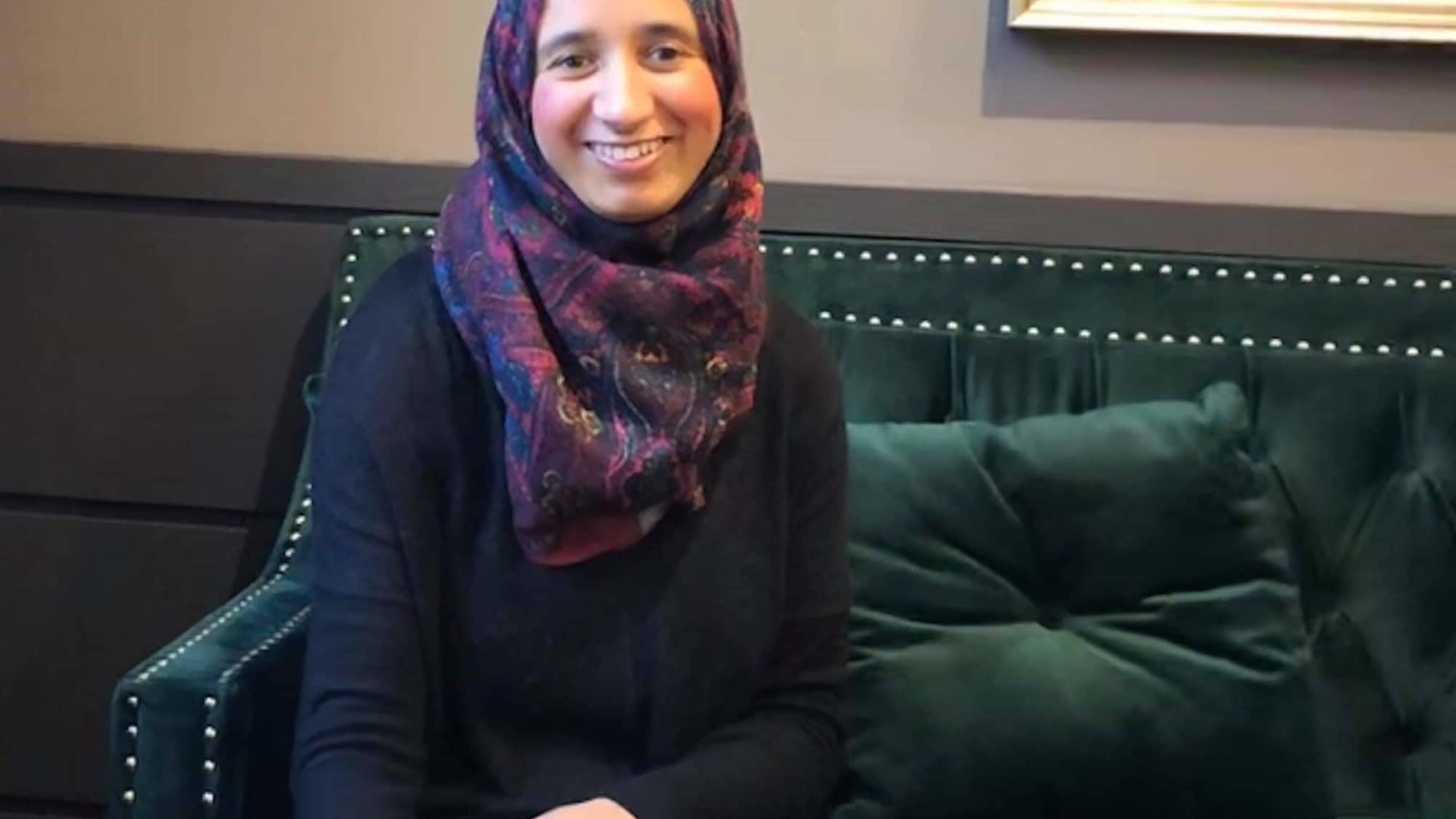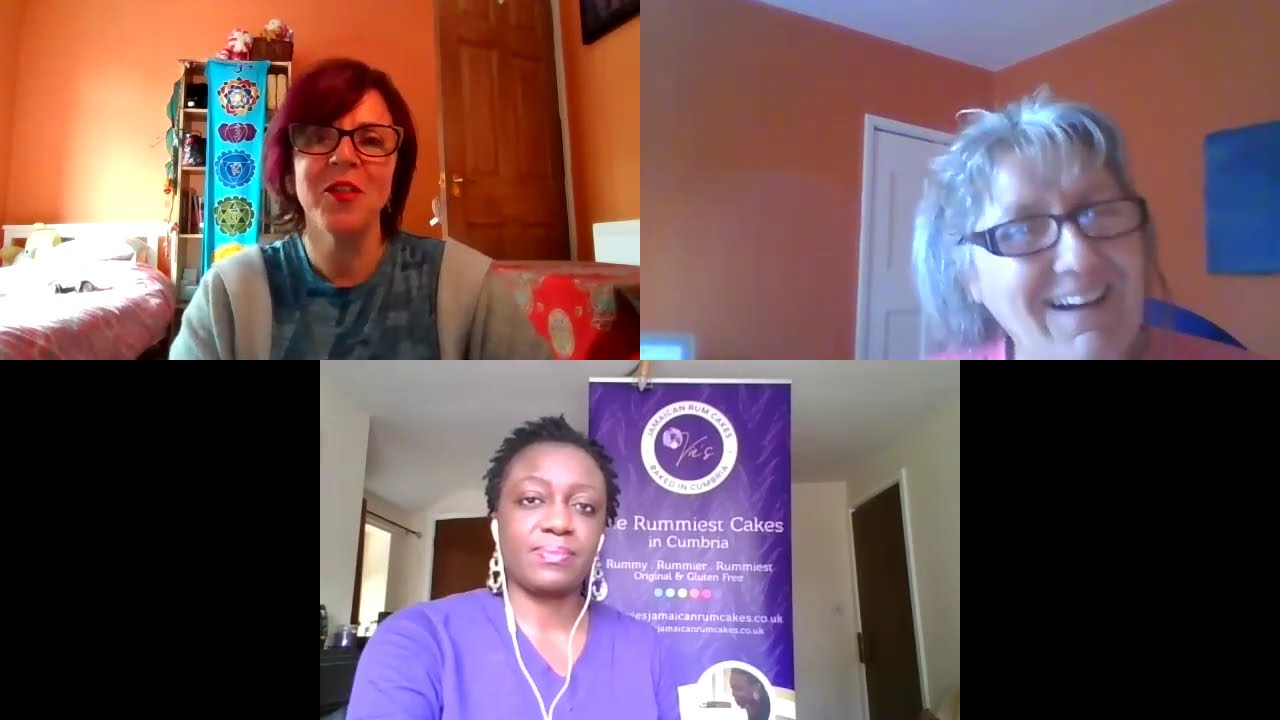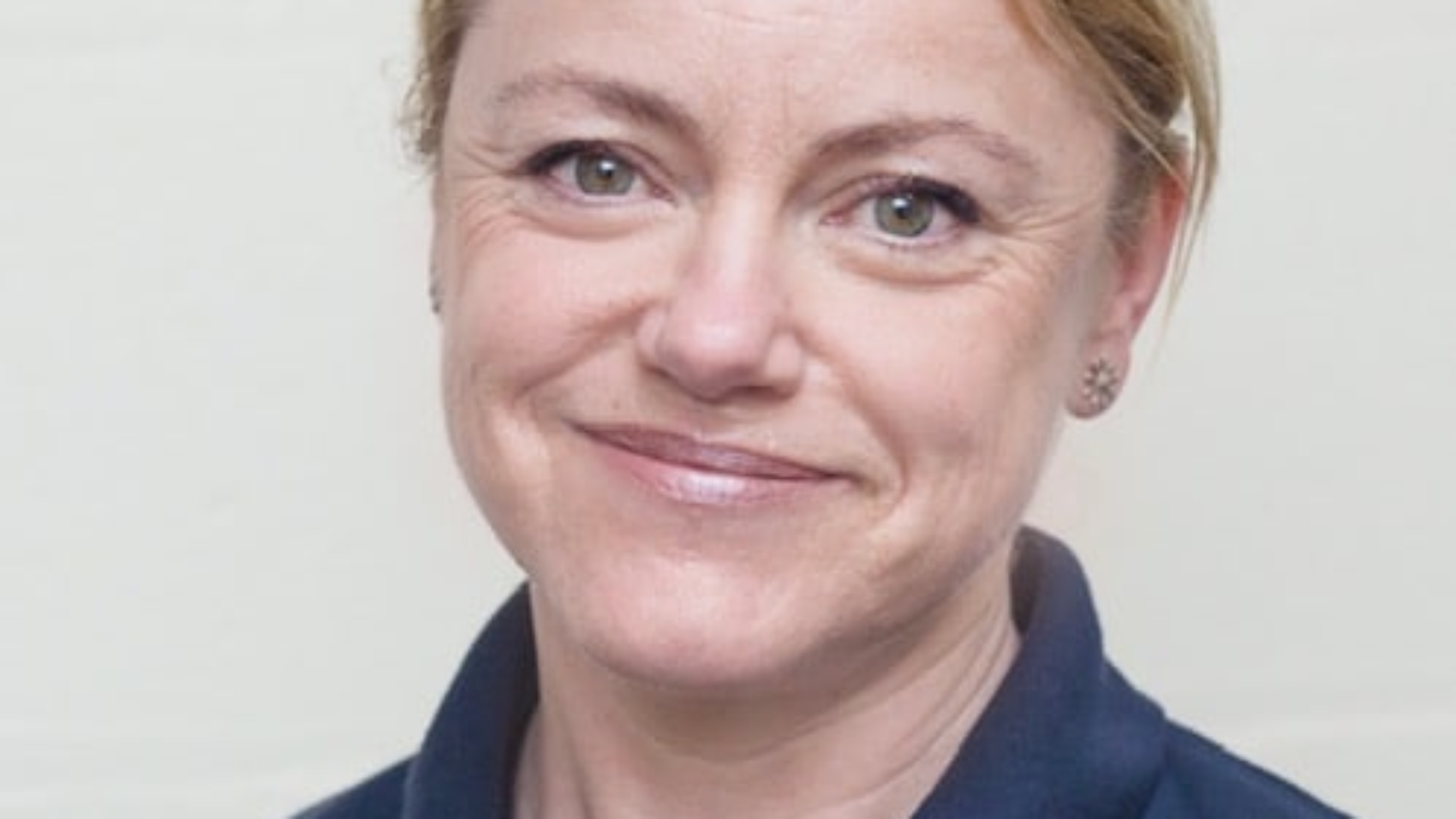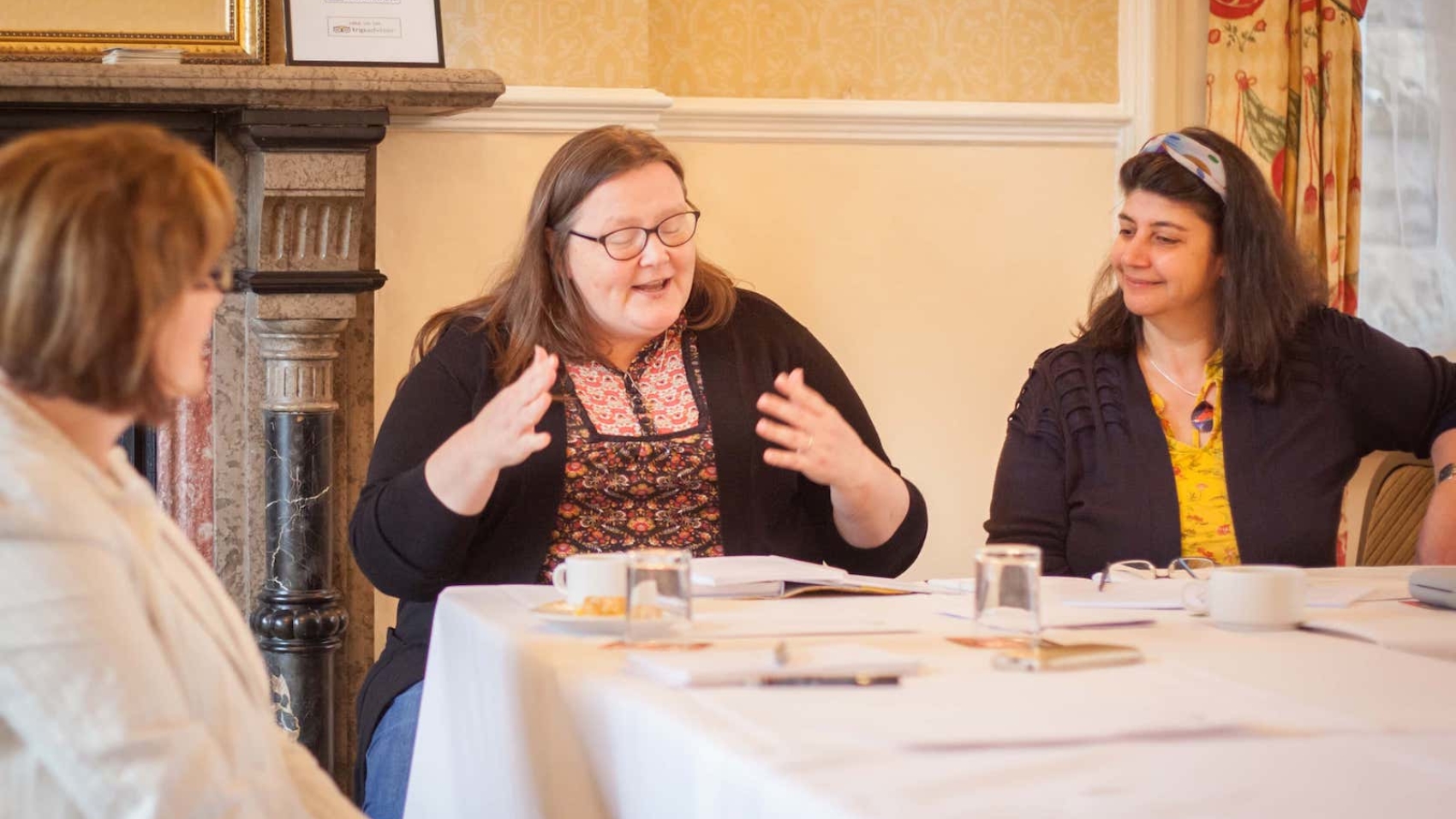Rachel Gristwood provides proofreading services, searching out spelling mistakes, grammar that needs to be improved, along with punctuation and formatting errors.
Growing Club Stories: Claire Stephenson
Claire is an Accredited Public Relations Practitioner and runs a PR and communications consultancy, working on a global basis. She focuses on ethical communications, helping the third sector, CICs, environmental organisations and small businesses, to tell their story with power and authenticity.
Case Study: Kelly Akister
Kelly Akister is a qualified teacher, specialising in advanced early years education. She’s been running her own business – Reading Fairy Lancaster – for over a year now.
Case Study: Hayley Cooper
A case study on Hayley Cooper, who runs her own lettings and property management company, managing a portfolio of properties in and around Lancaster and Morecambe. Hayley is on the Bloom and Grow course with The Growing Club CIC.
Mentor Training Course for Women Business Owners
The Growing Club CIC is training a second group of mentors to support our start-up group. Mentoring plays an important role in supporting women in business and is recommended as a strategy for supporting recovery and long-term sustainability.
This is a comprehensive training course that will strengthen your leaderships skills, support your CPD and enable you to apply for paid mentoring opportunities.
This is a three-session course, running on Thursday 22nd April, 29th April and 6th May 2021. Sessions will run from 09.30 – 12.30 via Zoom or in Lancaster. You are required to attend all sessions.
Is it for me?
This funded opportunity is for you if you:
- are a woman running a small business in the Lancaster District
- have been trading for at least three years
- can remember how hard the first few years in business can be!
- want to support a woman starting her own small business
- can commit to a face-to-face session an hour a month for three years
- understand the importance of mentoring as a tool of empowerment
Claire, a previous attendee and Growing Club Mentor, said:
“I found the training really insightful, from active listening skills to techniques of questioning and reflection to help empower fellow women in business to achieve their knowledge and goals. I’ve since gone on to train in coaching, with the mentoring training directly contributing towards my skills and capabilities.
“I love the fact that The Growing Club has such a strong ethic of women-supporting-women, and I’m happy to support a woman in business through her own personal journey.”
Application
The training is free if you commit to working with your mentee for three years. If we have spaces available, we are able to open up this training to others at a cost of £750.
Training will be delivered by Paul Aisthorpe and Nicola Combe. For more information, please email jane@thegrowingclub.co.uk or call 07521 314926. You can download the application form here and return to Jane.
The Growing Club Stories: Soaad Patel
Soaad Patel is the owner of Ayesha’s Attire, an independent boutique providing high-quality clothing that helps busy women dress well to feel good. Here she shares her story about how her business started, and how The Growing Club has helped her gain confidence and create solid business foundations. Soaad took part in the 12-month Roots and Shoots course – The Growing Club’s start-up course.
I’m Soaad, and my business is called Ayesha’s Attire. It’s named after my five-year-old daughter. As a single mum, she is my inspiration. What drives me is to give us both a better life. Before having her, I was very into fashion and loved buying clothes. But when I became a single parent I had to rethink my finances.
So I thought of the concept of buying pieces that I can wear over and over again, which are versatile and can be worn at home, or out with friends and so on. I also heard a lot of other women saying the same thing, so that’s why I started my business to help women buy affordable pieces which will go a long way. My pieces are modern, stylish and require minimal effort, you can dress them up with a belt or a scarf, but you don’t have to. Whether you’re a mum or a busy woman, these pieces help you look good. And when you look good, you feel good, and you have the confidence to tackle the day’s challenges.
Obviously, in this pandemic we’re spending a lot of time at home and want to be comfortable, but if you’re on a Zoom call you also have to be presentable. And this is what my business is all about, providing what women need in their new lifestyle, with high quality pieces you can keep for a long time, which are also comfortable.
I started my business last year before my daughter started school, but as she’s a child with a lot of energy, like most children that age, it was hard to concentrate on the business until she started in reception full time.
One of the reasons I started my own business was because I’ve always been a career-oriented person. I used to have five or six jobs at once, working in schools with children, and I loved it. When I became a mum, I felt like I’d lost that part of me, and I missed working, so I worked in retail for a while, but it didn’t have that problem-solving element which I enjoyed, so when a friend suggested I should start my own business, I started looking for suppliers, and it all went from there.
Obviously, I didn’t know how to run a business and I knew I needed support so that’s when I found out about The Growing Club. I had a chat with Jane Binnion and found out about all their courses and really liked the community feel of it. I also liked the fact that there are women at all stages in their business involved in The Growing Club, so whatever stage you’re at, people will relate to you and can help you.
My business is still fairly new, but I know a lot more than I did. For example, I didn’t know about getting the foundations of your business in place, and I went 10 steps ahead. But now thanks to The Growing Club, I know how important it is to do the right steps in order to be successful and to have a concrete business.
In 2021 I would like to continue to build up my customer base and grow my mailing list. When we’re allowed, I want to do pop-up shops as well, as they’re a great way to connect with people.
I’d recommend to other women that they get to know the ethos of The Growing Club, because they’re not like other organisations. It’s a community where women often go through the courses and then become involved in delivering them to others. I’m helping to facilitate the Sowing Club, for example, and I know other women have been through courses and gone on to volunteer and work with The Growing Club too, which is fantastic.
Overall, I’d say the main way that The Growing Club has helped me is with my confidence. I’m much more confident now than I was before I met Jane, and I’m really excited about the future of my business.
You can find Soaad’s website, Ayesha’s Attire, here or connect with her over on Facebook via her business page here.
November at The Growing Club: What’s On?
As the autumn creeps in with its beautiful colours and cooler temperatures, we are now in the second lockdown in the UK, due to the ongoing COVID-19 pandemic.
However, our work at The Growing Club continues, albeit mostly virtually! You can find all of the workshops and courses that are on offer during November in our quick and handy round-up below.
4th, 11th, 18th & 25th November – The Sowing Club new cohort starts (and runs into December). This is a fully-funded, six-week skills training course for women who are unwaged or deemed to be socially disadvantaged. Read more about the course here.
9th November – Bloom and Grow – the second session of our 12-month business growth and sustainability programme. Find out more about this course, specifically designed for women already running their own business, at this link.
16th & 23th November – The Gratitude Gallery (with dates running into December) with photographer, Ginny Koppenhol. Ginny will facilitate a month-long phone photography gratitude practice, designed as a mood-boosting creative group activity, during these challenging times.
The course will be weekly online workshops spread over four weeks, where you’ll learn phone photography and editing skills and use these to notice and record the aspects of your daily life that you feel grateful for.
At the end of the course, Ginny will also create an online gallery of your images to share more widely representing your moments of appreciation, experienced and captured. There are 10 spaces available
Sessions are as follows (participants are asked to commit to all four): 1-2.30pm via Zoom. Click this link for more information and booking details.
20th November – Lancashire Women’s Peer Network begins. A funded programme from November to February is designed to provide a safe learning environment with trained facilitators. Women entrepreneurs and senior managers will be able to share the difficult issues their businesses are facing in the current COVID-19 pandemic. Find more information here.
26th November – Federation of Small Businesses, Mindful Management, with Dr Hazel Hardie. This session on Mindful Management will cover the 5 stages of mindful management. You will discover how to support the wellbeing of the people you work with, as well as creating an effective mindfulness practice for yourself. You will also learn about how to use mindfulness to improve your communication and relationships with others. Spaces are limited – to book online, click here.
30th November – Public Speaking Workshop: Find Your Voice, with theatre practitioner and facilitator, Emma Rucastle. The workshop will tackle the public speaking, which can be a worry for many small business owners, especially women, who have to present themselves and their businesses at a range of events – both formal and informal. In this interactive workshop, Emma will guide participants through a range of fun practical exercises, focusing on building confidence and finding your own voice. 10.00 – 12.30pm. Tickets are £10 and you can book online here.
Looking forward to December, there is a workshop is on creating and running effective Facebook adverts. Love it or hate it, people are using Facebook during this pandemic, because it is convenient for many businesses. If you have products or services to sell you might want to join in. Sarah Tinsley from Tech and Toast is recording a tutorial for you to view and keep. This will be available in the last week of November, with a live Q&A via Zoom on December 2nd. For more information and to book this workshop, please click here.
If you have any questions on any of the above courses or workshops, please drop Jane a message
Back Her Business
In September 2019, The Growing Club became a regional business support delivery partner for the NatWest Back Her Business Initiative.
It has been a big concern for us that women starting a business can’t get seed funding, and if someone is starting a business from being on state benefits, which quite a few Growing Club start-ups are, finding money for simple items such as business cards is a big deal, let alone a website, laptop or other essential equipment.
For us, Back her Business is a great initiative for women start-ups because crowdfunding brings in much-needed support and NatWest match the fund – up to 50% of the target. In addition, it’s a fantastic marketing exercise.
But it isn’t easy. It takes time and energy and it can be scary. After all, it involves asking for help and money: two things that don’t always come easily.
In this video, Jane Binnion interviews two women – Helen Dixon and Elaine Remy – who ran successful crowdfunder campaigns during the COVID-19 lockdown. The interview shows what it’s really like to crowdfund, answering questions posed by women interested in running their own crowdfunding campaign, as well as Helen and Elaine’s top tips for success.
If you are interested in using Back Her Business to kick-start your start-up, you will find full details here, or email Jane@thegrowingclub.co.uk to discuss your idea and see how we can support you.
The Growing Club Stories: Wendy Jones
My name is Wendy Jones and I run WJ Cleaning Company. My journey started in 2013 when I suddenly and unexpectedly became a single mum. At the time, I was a stay-at-home mum who volunteered in my son’s school. It was a very traumatic time for both myself and my son and the will to survive kicked in. So, I got a job as a teaching assistant and set up an ironing service which meant I could work at home and care for my son.
My ironing customers started asking for cleaning services as they knew my standards were high. As my son got older, I took on more cleaning work. I loved working in school but soon realised I could not progress, so I looked at taking on a staff member to help with the cleaning and the rapidly-increasing number of customers.
I put a note up on Facebook asking who could help me grow and employ staff and up popped Jane Binnion! Before I knew it, I was pitching my business ideas (along with nine other startups) to a group of 10 business people in front of an audience who had paid to watch. I was lucky enough to get the opportunity to work with a business coach and marketing coach for six months, which gave me the confidence to leave my ‘proper’ job and run the business full time.
I also undertook the Bloom and Grow programme with Jane and The Growing Club, which gave me the foundations and confidence I needed to grow. Since then, my business has grown, albeit in an up-and-down kind of way, but Jane and The Growing Club have been there when I needed them, whether that is just to let off steam in the drop-in or do one of the many workshops around subjects like social media and marketing etc. I was able to sell my house to buy somewhere larger with my mum so she can help with childcare and I can help her which further strengthened my foundations to concentrate on the business.
At the beginning of this year, we had just started cleaning for a large business in Carnforth, as well as all the residential properties we still did. I had a team of around four people who I could offer regular employment to, alongside a couple of self-employed cleaners who helped out when needed.
Like millions of others, I was then halted in my tracks by the global pandemic. My overwhelming thoughts were with my staff. As a result of the timings I was not able to furlough any of them, which was a disaster. I had one cleaner stranded in Kartoum and another who had to shield.
Residential cleaning was not viable and we could not work from home. Again, all through this, The Growing Club and mentor were there for advice and support, having quickly made all their services available online.
My son has additional needs and was being home-schooled and my mum was in the clinically extremely vulnerable group. Left with no alternative, I paused the business.
However, I had had a taste of what things could be like running a business and managing and training a team, and I am confident I will do it again. Customers are coming back but unfortunately, the large commercial clean has stopped for the foreseeable future.
I have spent time training and getting to understand exactly how this pandemic will change the cleaning industry. I feel passionate about providing good employment and training to a workforce who have largely been seen as ‘unskilled.’ Effective commercial cleaning is going to be a vital part of the economy’s recovery. It has made me all the more determined to provide a high-quality, effective cleaning service alongside great employment opportunities for staff.
The cleaning industry is very supportive of one another and I have formed relationships with wonderful people and businesses across the world. This pandemic has made us all think and prioritise what is important for us and our businesses. The Growing Club is one of those things that I would have been lost without, both before and during this unprecedented time.
I am looking forward to recruiting more staff, training and supporting businesses as they open up to this new world – none of which would have been achievable without The Growing Club and the wonderful people I have met through it. We will shortly become a limited company, ready for growth again. We are very lucky in Lancashire to have this invaluable resource!
Coronavirus: Have Women Fallen Off The Business Agenda Again?
The Growing Club runs employment and enterprise training for women in North West England.
When coronavirus hit, we were unable to continue with our training programme in our usual face-to-face delivery, in small groups. However, we have continued to work from our homes and we adapted quickly to the lockdown situation, delivering all of our programmes online within a week, with additional programmes added to our offering. As we received the government small business grant, we prioritised to keep going, paying the team and ensuring we were around to support the many women we work with.
The Institute for Fiscal Studies (IFS) conducted their Quarterly Labour Force Survey and found that women and young people (under 25s) were more likely to be disproportionately impacted by the COVID-19 pandemic, with long-term economic consequences for these groups. This, they believe, is due to the groups being more likely to hold employment in areas that have been forced to close down due to the pandemic and social distancing requirements, like restaurants and hotels for example.
And the UN has also issued a warning of the global COVID-19 crisis increasing inequalities for women. The UN’s senior gender adviser, Nahla Valji, said:
“There is no single society where we’ve achieved equality between men and women, and so this pandemic is being layered on top of existing inequalities, and it’s exacerbating those inequalities.”
We surveyed women within our network, on the impacts of COVID-19 has had on their own businesses. Some of the themes that have arisen include:
Businesses
The responses received showed that the majority of women have been affected by the pandemic, with many businesses needing to close. One respondent stated:
“My business has ‘fallen off the edge of a cliff’ and I have furloughed myself.”
Finances
The impacts for women whose businesses have suffered under the pandemic are varied, with several women stating that their income has been dramatically reduced and they’re unsure what the future holds.
One respondent stated:
“I had to stop working mid-March. It has been tough, not just financially, but emotionally too. I have had to apply for Universal Credit which is upsetting as I was getting to the point that I was reaching the point where I wasn’t needing benefits for much longer.”
Home-schooling
Many women have assumed full caring responsibilities for young children, along with having to teach them from home. Several of those children have additional needs, resulting in the women being unable to work on their own business, if it is still active.
The pressures of taking on a domestic role, with often the male partner working full time from home.
One respondent stated:
“[My business has] totally stalled since I am now trying to home-school children. I’m not making anything…I don’t have the energy to work on online selling.”
Wellbeing
Many women report feelings of overwhelm, with tiredness and worry impacting them on a day-to-day basis. Lots have reported being proactive in dealing with these feelings, and trying to prioritise self-care, through yoga, meditation and other methods.
Maintaining support for our women
Our plan for prioritising the women from our network has worked well so far – the women appreciate that we have stayed around to help them stay focussed and motivated during a tough time. The weekly virtual drop-in sessions have become weekly goal-setting and check-in sessions. Keeping in touch and helping to keep women buoyant has become our priority.
We have even added new programmes: a daily 10-minute neck and shoulder exercise session live on our Facebook page; weekly Monday morning workshops to help women start the week well, prioritise and stay focussed; and we have even launched a women and leadership course.
Urgent concerns
However, we are also very concerned by what we are seeing and hearing from some of the women who use our services.
We already know women are hit hardest by poverty.
There is still an assumption that this country is one of happy, nuclear families.
The reality is some women and children are now in lockdown with abusive and violent partners and some women are having to live on next to no income. One woman who has been self-employed for just over a year, not only has to wait until June for her self-employment support payment, but also expects to only get £95 a month. She is a single mum.
The hardest thing for us to see is women unable to participate. Women with young children on our employment skills course had to immediately drop-out.
And women running businesses are unable to give attention to their enterprise when they have caring responsibilities. We fully understand that keeping safe is priority and we are totally reinforcing that message. But what it means in real terms, is that small businesses led by women with caring responsibilities will fall behind those run by men, and that women are carrying that responsibility even when they have a male partner at home furloughed, or also self-employed.
We talk a lot about women doing the double shift – running a business and a home. But this situation has really demonstrated that domestic responsibilities are not shared equally, even when they can be.
The outcome of that is women cannot attend to their business, or take part in the many business support sessions being delivered via Zoom.
We are guilty of that too. We have a number of sessions running at 12.30 . It’s normally not a problem, but in these times of all children being home-schooled, it’s now the children’s lunch break. We are aware now and have made changes, but this situation is not being heard at all by business support leaders – because it’s just another ‘women’s issue’.
What are the consequences of ignoring this?
While the business support world is all about getting the economy restarted, post-COVID19. There is no sense of how many businesses are run by women. The impact on local economies and individual families who once again find themselves struggling on low incomes is going to be huge. We would like to see national statistics on the business impacts on women from COVID-19, but it’s unlikely there will be any.
Post-lockdown, we absolutely must place great weight on creating a level playing field for women. Extra financial support should be prioritised for women running small businesses, on a local and national recovery agenda, because these women have had the critical jobs of caring for and educating our children, caring for the elderly and running homes at the expense of their own businesses.
It’s heart-breaking. So many women were just getting into their stride, building businesses on their own terms, using their skills and gaining confidence.
We can no longer say we are planning for economic recovery without planning for economic equality.
We will recover, but once again, it will be done with women having one hand tied behind them.

